Volkswagen Temporarily Cutting Production of European EVs

Volkswagen intends to temporarily limit production of the SEAT Cupra Born and its very own ID.3 EV in October. The company has cited market forces as the cause, noting that its Zwickau and Dresden plants in Germany would be throttled down for a couple of weeks.
According to Reuters, regional demand for both models has declined as Chinese EVs have started to become commonplace in Europe. Pricing has also become an issue due to sizable inflation and some scaling back of the EU’s electric vehicle incentives. However, it must be said that the ID.3 technically is a Chinese-made EV.
While most European allocations stem from Germany, examples from the Chinese market are the result of the joint partnership between Volkswagen Group and SAIC Motor and are assembled domestically.
Vehicle production will be scaled back from October 2nd through the 13th at Volkswagen's Zwickau plant (just in time for Oktoberfest) and from October 2nd to the 16th at the Dresden facility.
Reuters reported that the company declined to comment on the number of employees that will be affected. Earlier in the month, VW said that it would not extend the fixed-term contracts of 269 employees at its all-electric Zwickau plant — perhaps indicating that there is more going on here than meets the eye.
Meanwhile, demand seems to be increasing on the ID.4 manufactured in Chattanooga, Tennessee (in addition to the ID.3 plans located in Germany and China) seems to be improving. However, the relevant reporting often fails to mention how an uptick in model volume may be the result of a slow launch undermined by production issues.
It’s easy to claim something is enjoying a massive increase in sales when it’s a novel model starting from a modest production run.
In truth, Volkswagen’s EVs aren’t doing so well on the global stage. Both the ID.3 and ID.4 have undergone significant price cuts in China. For example, the ID.4 launched with a Chinese MSRP of 193,900 yuan (roughly $27,000 USD) in 2021. After repeat markdowns, it now costs just 145,900 yuan (about $20,000 USD) while the U.S. version retails somewhere around $39,000.
The ID.3 has been subjected to similar price cuts and now starts at around $16,500 (translated into USD) in China. However, examples sold in the United Kingdom are priced closer to $44,000 (likewise converted into USD).
This wouldn’t be an issue if Western consumers had an endless supply of money or if Chinese markets didn’t have so much cheap competition. Compared to other segments, EV volumes remain relatively small and tend to be focused upmarket where people can splurge on a luxurious local runabout. That’s not good news for the aforementioned Volkswagen products.
The company seems to have found itself in a bit of a pickle. But we cannot say how things will play out in the long term. Price cuts in China coincided with a 300-percent increase in regional sales for the ID.3 between June and July of 2023 and we’ve seen American ID.4 sales progress steadily as production improves.
Meanwhile, VW has continued experiencing shrinking volumes in Europe and China over the last several years. A complete disaster managed to be averted by the company managing to improve vehicle margins (something every automaker has been trying to do of late). But those days may be ending as even more customers are priced out of the new vehicle market. The synergies afforded by economies of scale tend to lose momentum as volumes decline and there are very few automakers that will be able to continue selling automobiles with exceptionally broad margins.
[Image: Volkswagen Group]
Become a TTAC insider. Get the latest news, features, TTAC takes, and everything else that gets to the truth about cars first by subscribing to our newsletter.

A staunch consumer advocate tracking industry trends and regulation. Before joining TTAC, Matt spent a decade working for marketing and research firms based in NYC. Clients included several of the world’s largest automakers, global tire brands, and aftermarket part suppliers. Dissatisfied with the corporate world and resentful of having to wear suits everyday, he pivoted to writing about cars. Since then, that man has become an ardent supporter of the right-to-repair movement, been interviewed on the auto industry by national radio broadcasts, driven more rental cars than anyone ever should, participated in amateur rallying events, and received the requisite minimum training as sanctioned by the SCCA. Handy with a wrench, Matt grew up surrounded by Detroit auto workers and managed to get a pizza delivery job before he was legally eligible. He later found himself driving box trucks through Manhattan, guaranteeing future sympathy for actual truckers. He continues to conduct research pertaining to the automotive sector as an independent contractor and has since moved back to his native Michigan, closer to where the cars are born. A contrarian, Matt claims to prefer understeer — stating that front and all-wheel drive vehicles cater best to his driving style.
More by Matt Posky
Latest Car Reviews
Read moreLatest Product Reviews
Read moreRecent Comments
- Peter Buying an EV from Toyota is like buying a Bible from Donald Trump. Don’t be surprised if some very important parts are left out.
- Sheila I have a 2016 Kia Sorento that just threw a rod out of the engine case. Filed a claim for new engine and was denied…..due to a loop hole that was included in the Class Action Engine Settlement so Hyundai and Kia would be able to deny a large percentage of cars with prematurely failed engines. It’s called the KSDS Improvement Campaign. Ever hear of such a thing? It’s not even a Recall, although they know these engines are very dangerous. As unknowing consumers load themselves and kids in them everyday. Are their any new Class Action Lawsuits that anyone knows of?
- Alan Well, it will take 30 years to fix Nissan up after the Renault Alliance reduced Nissan to a paltry mess.I think Nissan will eventually improve.
- Alan This will be overpriced for what it offers.I think the "Western" auto manufacturers rip off the consumer with the Thai and Chinese made vehicles.A Chinese made Model 3 in Australia is over $70k AUD(for 1995 $45k USD) which is far more expensive than a similar Chinesium EV of equal or better quality and loaded with goodies.Chinese pickups are $20k to $30k cheaper than Thai built pickups from Ford and the Japanese brands. Who's ripping who off?
- Alan Years ago Jack Baruth held a "competition" for a piece from the B&B on the oddest pickup story (or something like that). I think 5 people were awarded the prizes.I never received mine, something about being in Australia. If TTAC is global how do you offer prizes to those overseas or are we omitted on the sly from competing?In the end I lost significant respect for Baruth.



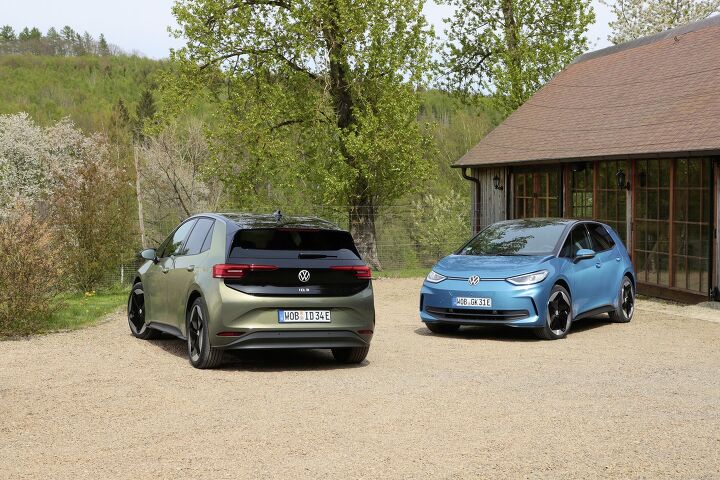















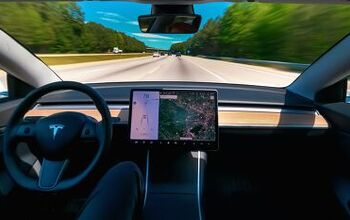

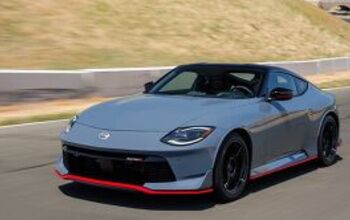


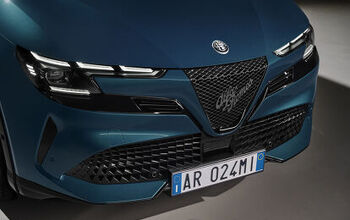


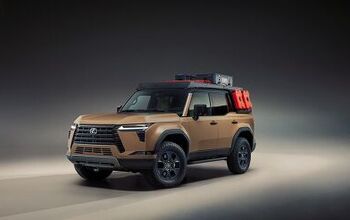



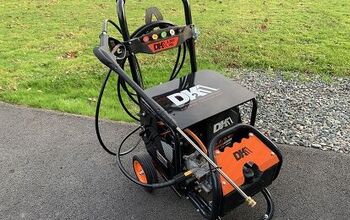


Comments
Join the conversation
If these companies really believe they have to drop ICE and go full EV to save the planet, perhaps the should stop charging double the Chinese price to help the Earth and it's inhabitants out, I'm told before it's too late.
Duh.